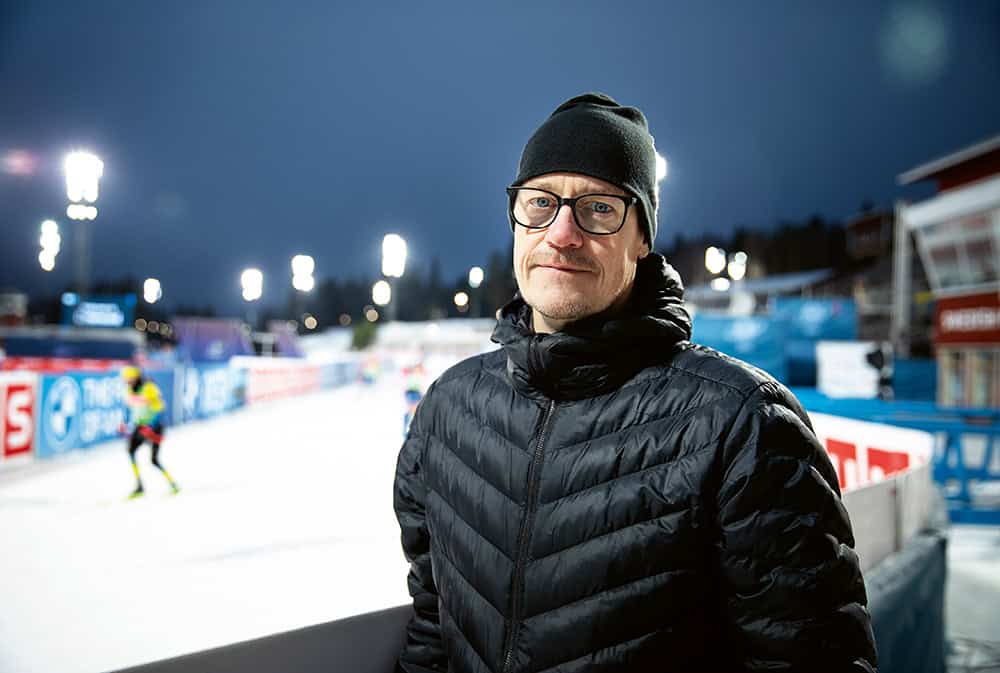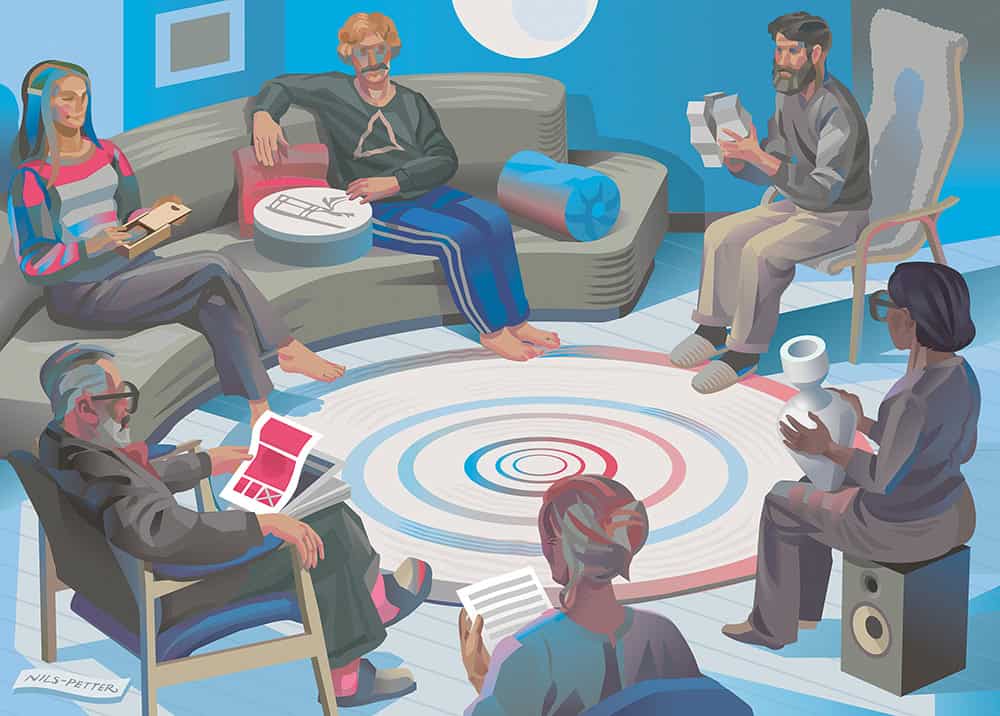In the first days of October 1649, a French philosopher moved to Sweden with high expectations. Unfortunately, he died a few weeks later of pneumonia, although some say he was poisoned. He could not fulfil the mission that was planned for him by Queen Kristina. She had invited him to establish and lead a new Swedish research academy – in other words, to quick-start modern research in Scandinavia. René Descartes was perhaps the most influential thinker of modernity – his legacy is often encapsulated in the following formula: I think, therefore I am. What would Descartes have done if death did not prevent him from becoming the president of a newly founded Royal Swedish Academy of Sciences?
I propose ten rules inspired by Descartes’s philosophy and my first-hand experience as a researcher at various European universities, including Sweden. Suppose we are to believe that there is something rotten in the kingdom of academia: in that case, I claim that the following rules could help regenerate the researcher’s mindset such that he or she may become, if not always more influential, at least philosophically healthy.
Rule 1: Think like yourself before you think like others.
A good researcher must conquer, and be given, the conditions to think as autonomously as possible. This rule is perhaps the most difficult for academics. Descartes recommended that we temporarily forget what other people think or what they have thought. His first lesson to become a good researcher was to become bold enough to think for yourself, explore new horizons and conduct research that is not “academic” in the sense of conservative, mimetic or politically correct. Truth is not always what the majority thinks today – truth is what the majority might understand tomorrow. Moreover, truth is constantly evolving, even if it can be partly and temporarily accessible to those who craft a robust method that allows us to get a sense of the unexpected metamorphoses of reality.
Rule 2: Think big and beyond the possible before you think helpful.
A good researcher is not like a capitalist start-up: his or her first function is not to solve current problems with technical tools but to pursue the truth. Descartes recommended that we should contemplate before we calculate. In English, one may call it “blue-sky” thinking: open-minded thinking that does not immediately try to fix a present identified problem but meditates on a new way of seeing things that may, in the future, fix issues that we did not anticipate. Bold research proposes solutions to problems that are not yet identified as problems in our time and society. People that work on the unthinkable, the apparently impossible, and the supposedly useless are not treated well in academia; they may be working in precarious conditions: it is hard for them to find a long-term job position since their research domain is often not (yet) mainstream.
Rule 3: Think slow, don’t think hectic.
A good researcher must be given the means to work calmly and with ample research time. What if everything we believe were false? If everything is an illusion, can I still find the truth? Descartes asked himself these questions as he let the stove’s fire hypnotise his thoughts. He waited many years before he published his conclusions, without the pressure of “publish or perish”. In fact, he was not an academic but an independent thinker, roaming the roads of Europe looking for the truth behind life’s experiences (Descartes was lucky enough to be able to spend his life thinking thanks to a family heritage). Academia today does not support slow thinking as it should. Postdoctoral job positions, for example, are rare and only last one to three years in general. When one is lucky enough to secure a lecturing job or an early career professorship, the number of teaching hours, the bureaucracy and the highly competitive hunt for funding often leave little time to think and breathe deeply.
Rule 4: Think with your heart as well as your mind.
Researchers must be given the means to work on what they admire. It is often forgotten that Queen Kristina invited Descartes to Sweden because of his writing on emotions as much as his writing on intellectual cognition. The philosopher believed that admiration was the core of all emotions. It is essential to explore what we admire. Working with what we love and feeling loved by society is vital. Descartes thought that to think well, we should self-critically mobilise our imagination, senses, memory, experience, and everything that makes us who we are. This is sometimes called intuition.
Rule 5: Think with concepts and not only with numbers.
Researchers should be allowed to think clearly with concepts and not hide their political or philosophical arguments behind numbers and statistics. Descartes loved mathematics, and he was a first-class mathematician. But he was also aware that some things cannot be measured: our thinking core, our sensing identity, our imagining, our intuition, our emotional integrity, our doubts; much of what makes us a person is not evidence-based. Can you give a geometrical proof to explain why you love your children? Can you measure the depth of your faith in the future? Descartes said that being clear, transparent and conceptually distinct in communicating with others is more important than numbers. Quantitative research has become dangerously fetishised in academia. People forget that behind every measurement, there is also an ideology. Our paradigms reflect the interests of a group, no matter how much we disguise them behind numeric results. The problem of academia is not quantitative research: there is plenty of evidence-based protocols that show this or its contrary. The real problem of academia is the need for a philosophically healthy and articulate ground in most research projects.
Rule 6: Think outside academic disciplines.
Research departments should be redefined around cross-disciplinary themes rather than around disciplines. Thinking outside the box is difficult in academia because of a sticky conservatism regarding the definition of disciplines. Too many professors are protecting their discipline as an entrenchment against change, claiming: “This is not history! That is not physics! This is not psychology! That is not philosophy!” There are still many tribal fortifications and walls in our universities. This reflects a lack of intellectual courage, the fear of losing students, and specialised funding. Cognitive tribalism is the worst kind of esprit de corps. Often, departments are not really communicating fruitfully with each other; quite the contrary, they tend to ignore each other. In the meantime, new disciplines and fields are constantly emerging globally. Universities should install systematic collaboration between departments, and research should be organised around thematic questions, not discipline committees.
Rule 7: Don’t always think; be a practitioner.
Researchers must be given opportunities to be heard and to test their methods in the world without too many obstacles. Descartes was also a philosophical counsellor; he dedicated much time to letters in which his correspondents wondered about the meaning of life. He accepted many invitations to have a written or spoken dialogue in person. His last appointment as a philosophical practitioner was his fatal one with Queen Kristina, who invited him every morning (exceptionally early) to the Castle library to entertain deep conversations. Research needs to be embedded in practice. An enlightened society is not the enemy of thought but rather one that is actively preoccupied with its philosophical health. We need thoughtful researchers who bother decision-makers by asking them about the meaning of what they do. Philosophical health is about the coherence and transparency between what we think and what we do.
Rule 8: Think outside the borders of capitalism.
The purpose of a researcher should not be to make money in order to survive. If you visit Adolf Fredriks Church in Stockholm, where Descartes was initially buried, you will still see today a marble monument honouring the philosopher. The sculpture depicts the angel of truth chasing the fog of illusion from our earthly globe. We need a shared cosmology that unites the earthlings into the same co-creative vision rather than a dogma. Our global dogma today is capitalism. But good research cannot obey the rules of capitalism. Good research may be financially unproductive. Good research may be unpopular and unfit to be marketed. Good research unites different cultures and minds around ideals rather than money. Descartes travelled all the time, often to avoid being persecuted by the dogma of his time, the Christian Church, but also because he knew that different cultures fruitfully trigger different thoughts. He often wrote in the lingua franca of his time, Latin, but he also communicated his ideas in his mother tongue, French, in a clear language accessible to many. Remember: L’argent ne fait pas le bonheur.
Rule 9: Protect yourself from your friends.
Researchers will often try to work with their friends or people who resemble them cognitively or socially. All too often in academia, there is a form of corruption that consists of hiring people that we already know or think we know. But it is wrong to think, for example, that as a feminist, you will feel better by working with feminists or that as a blue man, you need to be surrounded by blue men. It is wrong to think that if you are a Marxist, you should surround yourself with leftists or that if you are conservative, you should surround yourself with traditionalists. It is wrong to think you should hire your husband or your childhood mate to do a better job. Descartes had very few friends, and he engaged in correspondence with women or people working in fields that could challenge his views.
Rule 10: Create your rules.
The purpose of this article was to make us reflect on a few principles that could facilitate a bold and creative research environment. I do not think that there are too many researchers or too many universities, contrary to what was recently and dangerously claimed by Hans Ellegren, the current Secretary General of the Royal Swedish Academy of Science (an institution that was eventually founded much after Descartes’ death). In fact, quite the contrary: there are never enough researchers in our society. I believe we should all become researchers in one way or another, that is, free-thinkers and investigators of the philosophical health of our profession and our social behaviour. Are we heroes who fight against the corruption of the mind? What is our deep orientation and purpose? Do we come to work with our critical thinking and creative mind, or do we keep them in the wardrobe? Do we practice deep listening to all phenomena, questioning received views around us? And, last but not least, do we have faith in truth? Do we love truth even though it is a flowing creature, often changing clothes over time, never the property of a group or another?
In conclusion, I hope, dear reader, that you were only partially convinced by this article – because, as Descartes said: doubt is the origin of wisdom.
Luis de Miranda, PhD, researcher in philosophical health at Uppsala University.


















